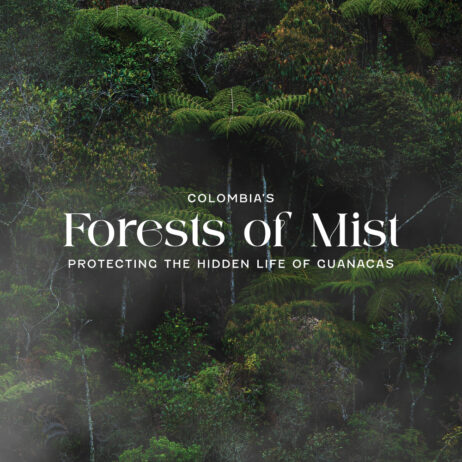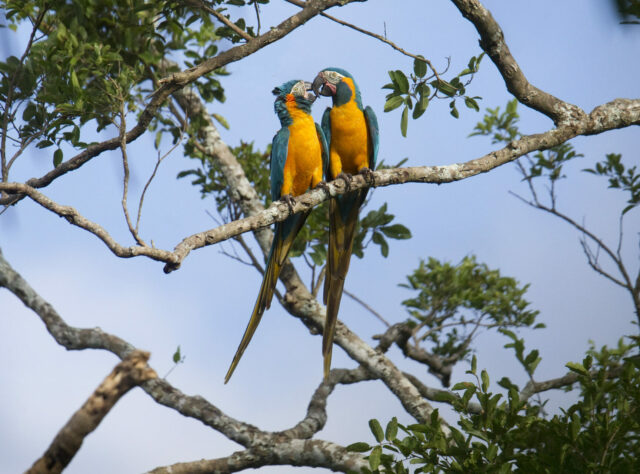
Though brought to the brink of extinction just a few decades ago, targeted conservation efforts and habitat protection is helping Blue-throated Macaws steadily regain their wings. Credit: Daniel Alarcon
The palm groves of Bolivia’s Llanos de Moxos savanna are home to one of the rarest species on Earth- the Blue-throated Macaw (Ara glaucogularis). It is estimated that only 400-450 individuals of this Critically Endangered species exist in the wild today. However, thanks to WLT-partner Asociación Armonía’s Nest Box programme, this number is increasing. 15 chicks have successfully flown from eight boxes following 2023’s breeding season. The most yet in a single year, the chicks have fledged from Asociación Armonía’s Laney Rickman Reserve, one of several they manage in North-Central Bolivia. With an incredible 128 Macaws now having joined the wild population since the programme began in 2007, the species is gradually returning from the brink of extinction. Asociación Armonía’s latest video update below shares a nest-by-nest account of the success of this year’s Blue-throated Macaw breeding season.
Known for their striking turquoise and yellow feathers, Blue-throated Macaws are a large member of the Parrot family and endemic to Bolivia. In fact, since 2015, the species has been legally protected as part of the country’s natural heritage. However, the use of their brightly coloured plumage for traditional Moxeño headdresses in Machetero ritual dances historically made them a target for excessive hunting by native communities. Coupled with being highly sought after for the pet trade, their wild population vanished almost completely in recent decades.
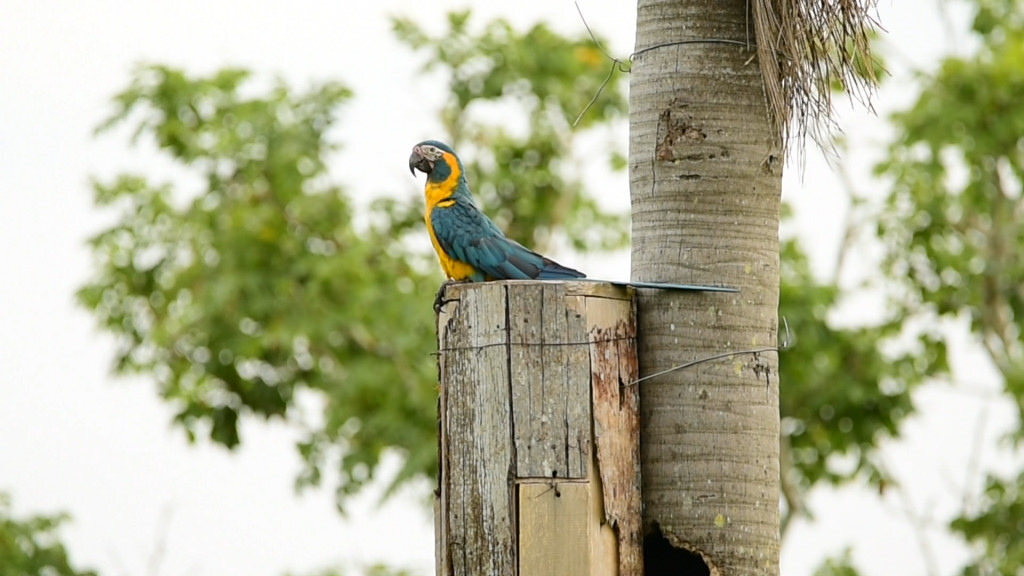
Blue-throated Macaw numbers are increasing thanks to Asociación Armonía’s Nest Box programme. Credit: Tjalle Boorsma
Despite the 2010 total ban on hunting and trapping these beautiful birds, their numbers have struggled to recover due to ongoing loss of habitat and nest predation. With an extremely selective home range, they are mostly found in the small islands of forest that dot the grassy plains of the savanna. The stems of Attalea phalerata palm trees are the particular favourite nesting spot for these Macaws. However, as the palms are highly coveted by a host of bird species, as well as bats and bees, their deforestation has resulted in the Macaws being frequently outcompeted for the remaining scarce trees.
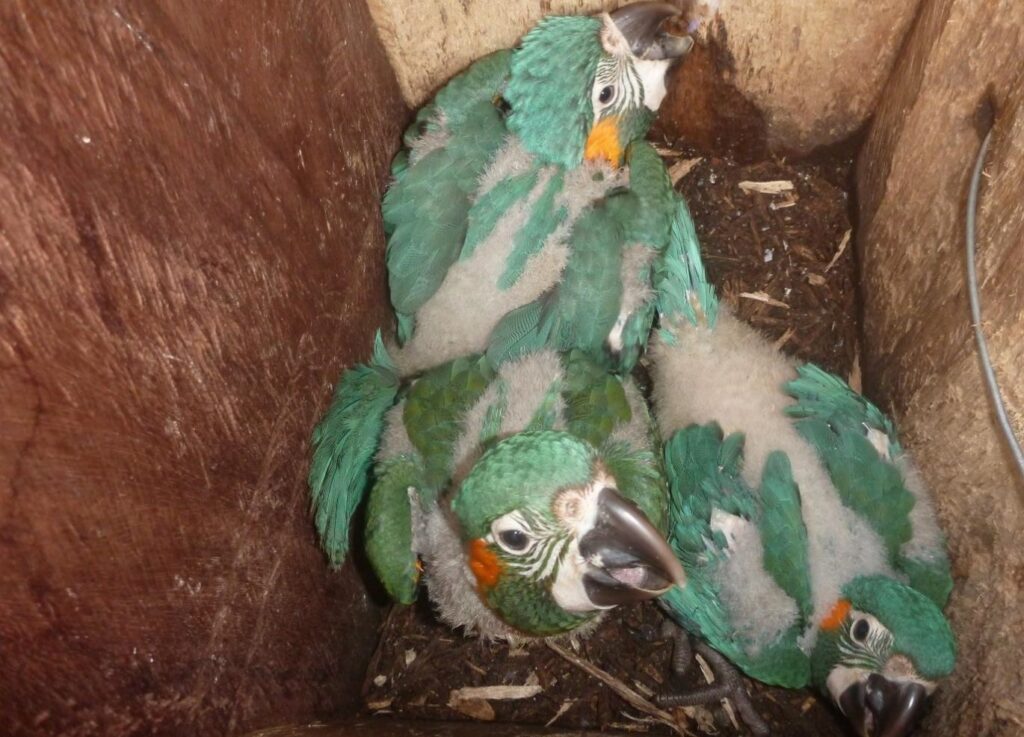
The chicks were hatched from the Nest Box programme at the reserve named for the late conservationist Laney Rickman. Credit: Cesar Flores
Since partnering with WLT in 2008 to create the Barba Azul Reserve, the world’s first protected area for the Blue-throated Macaw, Asociación Armonía has safeguarded key breeding and feeding sites for an array of tropical birds. By constructing and monitoring artificial nesting boxes, it provides breeding pairs with a suitable nesting place where eggs are protected from predation. Throughout the breeding season, rangers such as those supported by our Keepers of the Wild programme ensure chicks are healthy and well-fed until they are ready to fledge. The Asociación’s protection of the Macaws extends far beyond the nest. It is also committed to fighting the illegal pet trade, actively reforesting vital habitat, and integrating local indigenous communities in sustainable development and ecotourism, as an alternative to hunting.
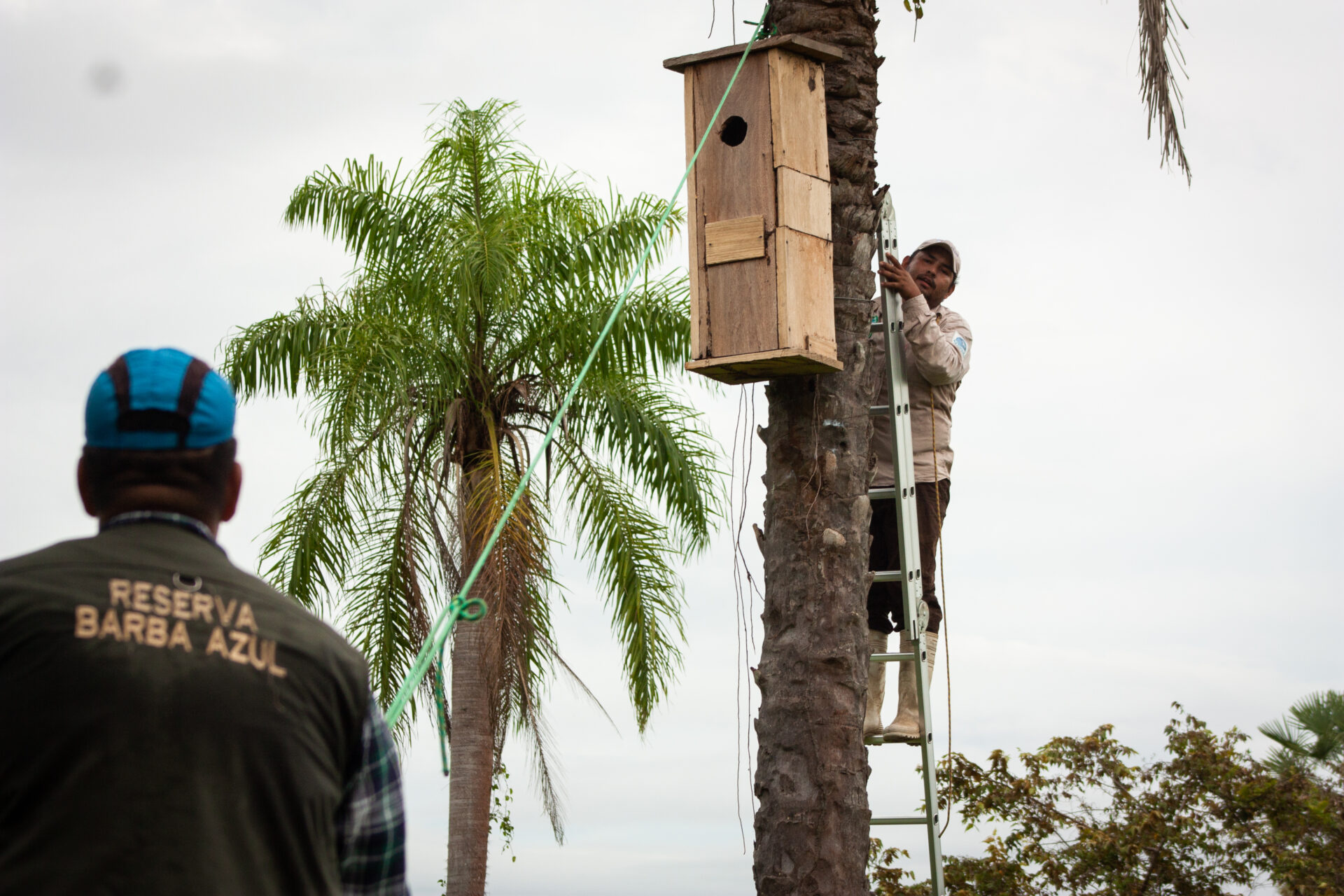
WLT’s Keepers of the Wild programme supports the essential work of the reserve staff- here Reserve Coordinator Assistant Luis Miguel Barbosa installs new nest boxes. Credit: Márton Hardy
Thanks to our partner’s unwavering efforts, the IUCN listing for the Blue-throated Macaw wild population has changed from declining to stable as numbers are rapidly climbing. The continuing success of the Nest Box programme shows the tangible impact our collective action can have on the preservation of wildlife. The best way for you to support the Blue-throated Macaws is through our Keepers of the Wild programme.

